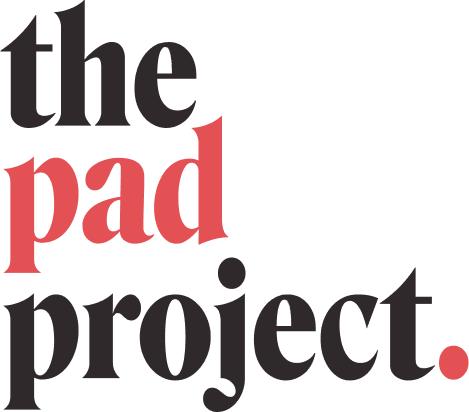Over the past several weeks, students and faculty might have seen plastic bins set up around the school, filled not with the usual books or food, but with menstrual products. Form V students Sylvie Poisson and Eve Kaplan organized this Pad Project drive so that Fieldston could contribute to the fight against menstrual inequality and learn about an issue not often discussed in the community. Poisson and Kaplan are members of the Pad Project, a global nonprofit that aims to remove stigma surrounding periods and increase access to period products worldwide, ensuring that those who menstruate do not lose educational opportunities. All products donated will go to the Bowery Mission, a collection of homeless shelters in New York City.
Why bring the issue to Fieldston?
“Ethics and social justice are rooted in [the school’s] mission,” remarks Poisson. “This is another issue that disproportionately affects people around the world and must be addressed, so it connects to the values of the school.” Kaplan explains how there are so many female issues, like abortion, that are discussed in school, but menstruation is talked about much less because “people get uncomfortable talking about it.” She hopes that students will gain awareness of this topic and understand the importance of starting those unfamiliar conversations.
To further educate the community, Kaplan and Poisson organized screenings of two documentaries, created by members of the Pad Project, relating to menstrual inequity that were. The documentaries, titled “Period. End of Sentence” and “Long Line of Ladies,” shed light on the significant changes that menstruators worldwide need to make once they begin menstruating. Poisson stresses the importance of these screenings in addition to the drive: “We encourage students to look past the US and the American-centric view on this issue. There are more dire situations in other countries. For example, India has a big period taboo.” Kaplan agrees, “People talk about the tampon tax, but actual access to menstrual products is often not talked about. We do not see the daily effects of this issue because of what we have access to, and this is a privilege.” Kaplan adds that she believes documentaries like these can address blind spots in the community’s understanding of menstrual inequity, and further motivate students to take action.
“Period. End of Sentence” portrays the difficulties menstruating brings to one group of women. The film takes place in Kathikhera, India, where periods are often believed to be a shameful aspect of women’s lives and women face limited access to clean menstrual products. As a result, some girls in Kathikhera are forced to leave school. Tired of relying on old clothes or spare cloth to handle periods, these women installed a machine that made period products, so all menstruators in the village could have the proper materials. “This machine provided a multitude of women with job opportunities, they would’ve previously never had,” Kaplan adds. This empowering documentary successfully provides insights into a vastly different community, “which helps expand students’ perspectives away from only issues of periods in the US and white feminism,” explains Poisson. “Long Line of Ladies,” which shows the significance of periods in relation to coming of age in the Karuk tribe of Northern California, also reveals how menstruation affects groups of women differently worldwide.
This drive did more than just collect pads, tampons, discs and menstrual cups; it brought to the community’s attention an injustice that people often shy away from and simply don’t know enough about. “I hope that the screening and drive were an educational opportunity for students like it was for me,” Poissons says. She is hopeful that the movies inspire more conversations about the stigma and inequalities around menstruation. “Even though we are a very progressive institution, we have a long way to go in terms of talking about this issue comfortably,” she adds.
Finally, Poisson and Kaplan encourage members of the Fieldston community to get involved with the Pad Project! “It helps connect with the community in new ways, and brings a hands-on approach to this social justice initiative,” the former enthusiastically says. In bringing the mission of the Pad Project to Fieldston, Kaplan and Poisson introduced a new term into the community’s social justice vocabulary. Their goal is to spread ideas, start conversations and get this issue to the front of students’ minds. “Solidarity around periods is a method of resistance,” exclaims Poisson. So let’s get involved, Fieldston!






